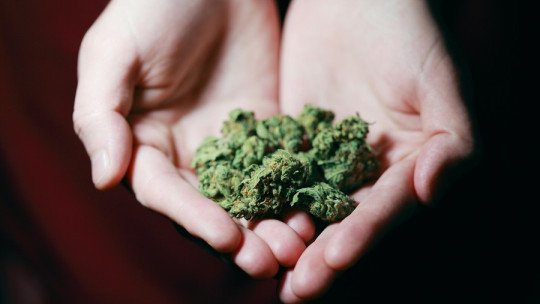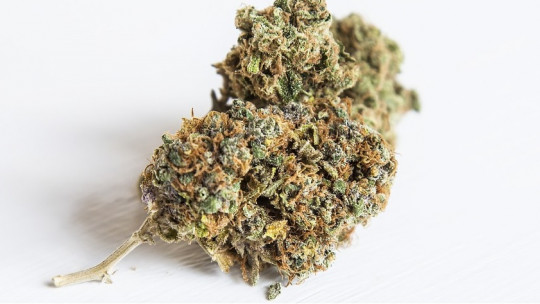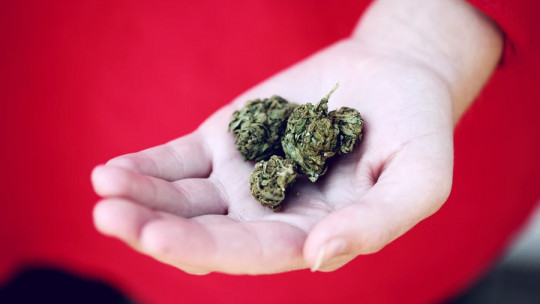
You have noticed that something in your child is changing. His attitude is no longer the same, there is a distance that did not exist before. He comes home with red eyes, locks himself in his room for hours, and his academic performance has begun to decline. You try to talk to him, but he only gives you evasions. Are you worried that he may be using marijuana?
Believe us: you are not the only person in the world with a similar situation, that is why we want to give you more information to illuminate your path. Below we present a list of signs that will help you identify if your child is using cannabis and detect a possible addiction.
How do I know if my child uses cannabis?
Adolescence is a stage of transformation. This is a period of physical, emotional and social changes that can be challenging for both young people and their families.
During this phase, one of the most common problems that parents must face is drug use by their children. Specifically, Marijuana has become very popular among teenagers which generates deep concern in parents and caregivers.
If you are concerned about the possibility that your child is using marijuana, it is vital that you keep your attention on possible signs that may confirm it. Below, we provide you with 7 clues to detect cannabis addiction in young people:
1. Mood and behavior changes
Marijuana can cause sudden mood swings, irritability, disinterest, lack of motivation, and difficulty staying focused. If you perceive your child to be more irritable than usual, experiencing sudden changes in his or her mood, or showing a lack of motivation, these could be warning signs.
It is essential to distinguish these mood changes from those typical of the adolescent stage. You should pay special attention if the changes are abrupt and significant, or if they are accompanied by other symptoms mentioned below.
2. Red and dry eyes
Marijuana can cause dryness and redness in the eyes. Therefore, if you notice that your child has red eyes regularly, it could be an indication of substance use. It is important to consider that red eyes can also be caused by other reasons, such as allergies or visual fatigue. However, if it occurs together with other indicators mentioned in this list, it could be a cause for concern.
3. You notice it “different”
And, when we talk about different, it can be: that he looks more disconcerted and even dizzy. Have you noticed that he has neglected his physical appearance a little, that he forgets more things than before or that, coincidentally, has started spending more money, but can’t explain why.
4. Academic problems
Dropping grades is usually one of the most common signs associated with marijuana use. If you notice that your child begins to get low grades, skip class, or simply lose interest in his studies, it is essential to start a conversation with him to investigate the reasons behind this change.
5. He doesn’t introduce you to his new friends
Adolescents with cannabis addiction tend to distance themselves from their friends and relatives. If you notice that your child is spending less time with you or his family, and he prefers to be alone or with a new circle of friends unknown to you, he may be using drugs.
It is vital to be attentive to see if this distancing goes hand in hand with other changes in their behavior such as lack of interest in activities you used to enjoy or neglect of your personal image.
6. Your clothes or bedroom smell like cannabis
This is probably the most noticeable sign, but the evidence will not always be there at your fingertips. However, if you are careless, this could happen. A sign to know if your child might be hiding information is to use incense or air fresheners to mask the smell of grass.
7. Sleep disturbances
Marijuana use can affect sleep cycles, causing difficulty falling asleep or excessive sleepiness. If you notice that your child is having trouble sleeping and you recognize several of the signs on the list, it could indicate that he is using drugs.
What does cannabis addiction look like in young people?
Let’s say you identified some signs that your son or daughter might be using cannabis. How do you know if it was a specific moment of exploration or an addiction? To know this, it is important to pay attention to several signs.
Addictions, whatever they are, are characterized by a loss of control, and this loss of control usually has a great impact on social life: from compulsively spending money on that source of pleasure, prioritizing the addiction over activities that were previously enjoyed. , failing to fulfill their obligations or neglecting their studies, work or personal relationships for no apparent reason.
Withdrawal syndrome is another sign that reveals dependence. These signs may include irritability, anxiety, sadness, trouble sleeping, changes in appetite, and upset stomach. If you notice your child exhibiting these symptoms and have identified other clues that suggest he might be using addictive substances, he may be dealing with an addiction.
People who are addicted to marijuana They tend to be untruthful and deceive their loved ones to cover up their consumption. If you detect that your child is deceiving you about his activities, companies or actions, it is crucial that you confront him and seek professional advice.
How to talk to my child about marijuana
Communication is very important to improve human relationships. If you’ve noticed worrying signs, it’s important to have this conversation at a time when you’re both calm and can talk without interruptions. Avoid having this conversation in public, in the middle of an argument, or when your child is under the influence of marijuana.
Once you approach your child, try to have a calm and open attitude. Avoid lecturing, judging, or accusing him, as the goal is to have an honest and constructive conversation, not a confrontation.
Speak honestly and let your child know that you are concerned about their well-being and that you want to help them. Explain the risks of using marijuana, both short and long term, and how this decision can negatively affect their life.
Once you share your point of view and concerns, it is important that you listen carefully. Don’t interrupt what he or she has to say or try to argue with him or her. Try to understand her point of view if she decides to tell you. If she simply admits that she does it and can’t tell you anything else, she shows empathy toward the effort she has made in telling you.
If the tone of the conversation escalates or tempers flare, don’t give him ultimatums such as threatening to throw him out of the house if he continues using marijuana. This will only make the situation worse and cause you to become even more isolated. Just let him know that you are there to support him.
If you need support to address the situation in a more assertive way with your son or daughter, you can seek professional help. A psychologist or addiction therapist can help you address the situation effectively.








